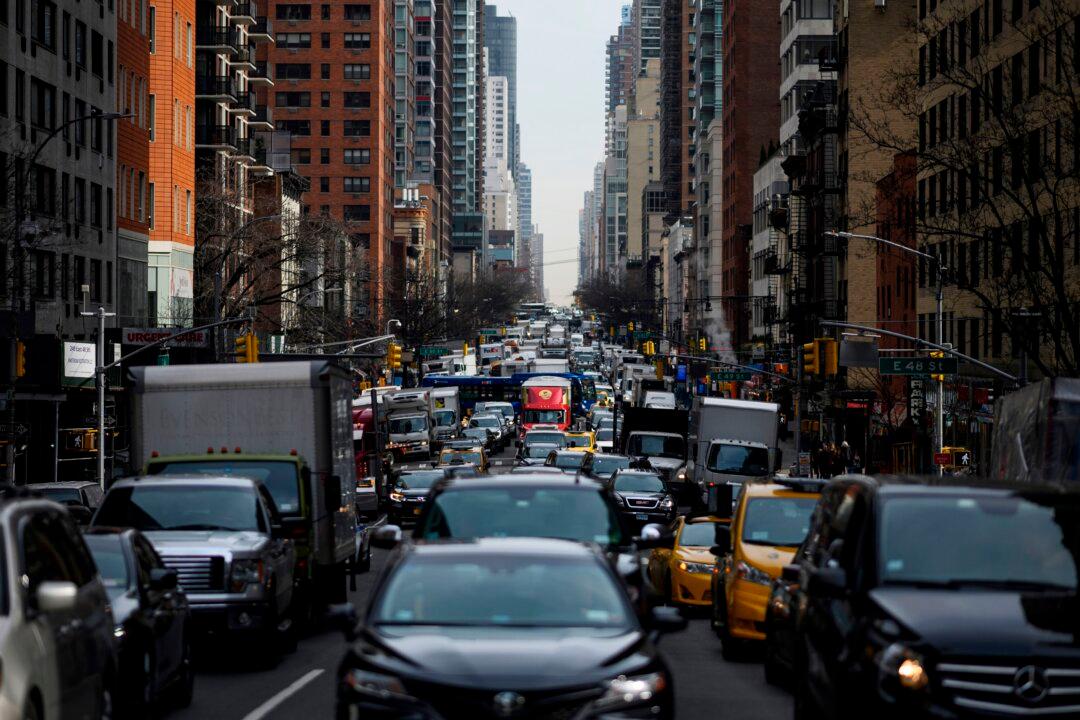New York State lawmakers approved a new congestion pricing program for Manhattan on March 31 as part of the state’s $175 billion budget—the first U.S. city to have one. But the major details, such as how much drivers will have to pay and how it will be implemented, haven’t been hashed out yet.
The program is aimed at lessening the traffic in congested parts of Manhattan by charging drivers who are heading into the city—pushing drivers to reconsider public transportation. New York City now joins other cities outside of the United States that have already employed such a system, such as London, Stockholm, Milan, and Singapore.





